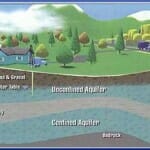- Webinar No: WBNR 1175
- PDH Units: 2
No data found for Custom Course Number
No data found for Custom Course Units
- Webinar No: WBNR 1175
- PDH Units: 2
Intended Audience: Electrical Engineers
Credits: 2 PDH Units
When: Tuesday 12/16. 2 - 4 pm EST
In the United States, there are now more than three million EVs on the road and over 132,000 public EV chargers across the country. The Edison Electric Institute estimates that by 2030, the number of EVs will exceed 18 million, and the U.S. has set a goal of half of all new vehicle sales in 2030 to be EVs. In Europe, adoption in many countries is occurring at an even faster rate. Norway has set a goal of all new vehicles sold in 2025 to be electric.
All of these vehicles will need access to charging facilities, whether at home, at work, at play or while traveling. While EV charger technology is evolving rapidly, there are certain electrical basics that will always be needed in order to properly design the power supplies to these chargers. This 2-hour webinar takes an in-depth look at the options for providing power to these stations at an assortment of locations, including a look at many of the various Code requirements for proper design and installation. All three levels of charging are considered, with a close look at charging voltages, currents, power and charging times. Single phase and 3-phase supply systems are discussed in detail.
Date: Tuesday. December 16. 2025. Starts: 2 - 4 pm EST
Credits: 2 PDH Units
Learning Objectives
At the successful conclusion of this course, you’ll be able to identify and discuss:- Historical and future EV and EV Charger information.
- Classification of EVs.
- Comparison of fuel costs of electric and gasoline vehicles.
- Comparison of CO2 emissions of EVs and gasoline vehicles.
- A summary of charging levels, including power range and charging times.
- Examples of existing chargers and desirable charger features.
- Codes and Standards for EV chargers.
- Single phase residential service calculations for adding a charger.
- Use of NEC 220.87 in determining how many EV chargers can be added without overloading a service.
- Detailed 3-phase calculations to determine capacity for 120V and 208V single phase chargers.
- An example of determining how many EV chargers can be added to an existing condominium service.
- Discussion of present and anticipated future EV charger control, communication and monitoring features.
Special Webinar Instructions
After payment, please visit this webinar page, click "Start Course" and fill out the Webinar Registration Form. You'll receive email notification and details on how to join the webinar. You will then be able to access the webinar slides, test your system and receive webinar reminders. After completing the webinar requirements, your certificate of completion will be saved and available for download in your profile. We value your feedback! Please rate this webinar after completion.Group Discounts Available
Course Reviews
4.2
- 5 stars10
- 4 stars5
- 3 stars1
- 2 stars1
- 1 stars1
Once completed, your order and certificate of completion will be available in your profile when you’re logged in to the site.










EV’s are our future so its a must to learn about them
Excellent I learned so much
learned a lot of new concepts
very informative, clear and offers lots of good references.
Good information, well organized clearly presented.
Very incomplete and optimistic economic analysis
good info on background and some calcs, was looking for some more real life scenarios such as installation, construction, etc
Instructor was very clear and provided interesting insight in the topic.
Good presentation
Great course for non-EE major engineers as it provides a general overview. Informative & helpful.
very well presented
great presentation
Surprisingly education and interesting. Refresher course on AC power and usages
For a 2 hr participation this course should delve into Article 625 more deeply and guide EE’s is the proper methods and code requirements for installation. This course focused more on Services and service sizing. Important but not really specific to EV. This course should be titled introductory.
Course was informative for basic EV Charging information.